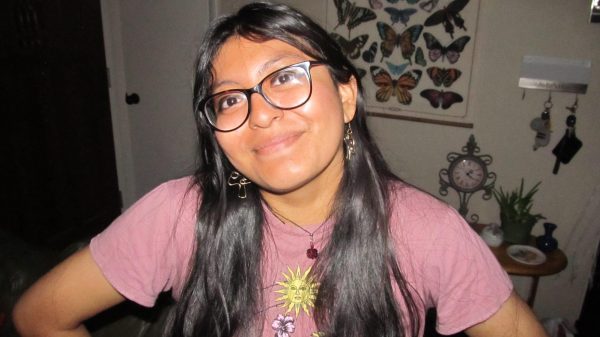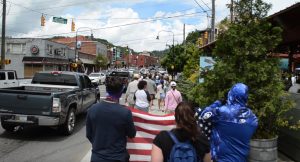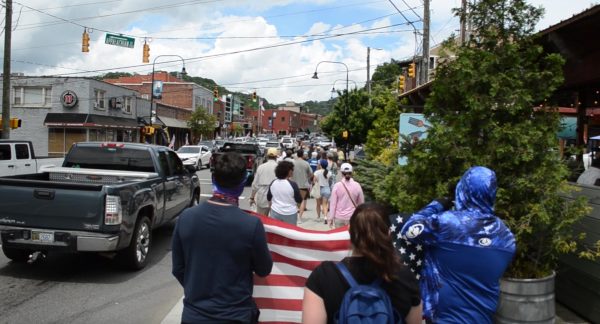COLUMN: The trials of being a first-generation Latina
February 1, 2023
I remember the feeling of joy and happiness when I received my first college acceptance letter, and my family’s excitement when I read each one out loud to them. I remember the sense of wonder when I moved to Boone and saw the beauty of living in the mountains. Yet, there is always a lingering feeling of exhaustion and worry that I hold regarding my identity. I am a first-generation college student, a bisexual Latina woman, and it is important to express why my journey is significant and relevant to others.
I am the second person in my family to attend college, the first being my oldest sister who is currently a college junior. To clarify, first-generation means that your parents have not received a college education, regardless of other family members. Growing up, I was always curious about college and what life would look like with a degree. While I didn’t know what I wanted to major in, I knew I would figure it out in college, which was loaded with vast opportunities. I knew I wanted to study something in the humanities area, something in the political sense. The college application process was something emotionally and mentally draining, all while combating my International Baccalaureate classes and senior year. While my sister experienced this before me, I had not. Having to fill out the FAFSA, Common Application, and NC Residency was time-consuming, challenging and tedious. My SSN, RDS number and important tax documents were hard to find from my parents, alongside their information as well.
Fortunately, I did have a college advisor who truly helped me and my family navigate this process and become more well-versed in it. However, having to do this while being a middle child caring for my young sister and cousin, having leadership positions in three clubs, and trying to maintain a social life was incredibly difficult. How I managed this is beyond me, but I’m proud of myself for pushing through and grateful for the people who helped me manage it. I am still in contact with them, and I strive to help my community by helping my high school friends with the process as well.
Another major component of my journey is my identity as a Latina woman with roots in Puebla, Mexico. I have grown up in North Carolina all my life, and have kept in touch with my culture and language which have at inopportune times been compromised. My ethnicity, culture and Spanish language are imperative to who I am as a person and are things that I do not shy away from. But one struggle I faced in the college process was the lack of representation in colleges and universities here in the south. It is a widely known fact that App State is a Predominately White Institution and it was one of my cons when applying here.
I was guaranteed early admission as I participated in the AsULead program, a program “for a diverse group of students who are emerging leaders in their schools and communities.” While they have initiatives to help students of color and first-generation students, there is a difference between being in that environment and experiencing it outside of that setting. It is something that I still deal with — the feeling of being a woman of color on campus.
I have classes where I am the only person of color. Even when I go to dining halls or on-campus spots, I am in a sea of whiteness. I have attempted to reach out to organizations and clubs here at App State that promote diversity and heritage, but I don’t feel the connectivity and support that I would like to see. Though as time will tell, there is always a chance for things to turn positive. I have not, nor will I ever, give up my educational journey, and instead I choose to move forward while being vocal about my experiences here at the university.
Stories that reflect the issues of being BIPOC, first-gen and more must be shared and vocalized to the world as there are countless others who have experienced or facing these issues. Furthermore, I am in no way implicating that others who don’t identify with being BIPOC or first generation aren’t hard workers. Instead, I am saying that while they have worked hard to get here, race was not an obstacle that they had to endure, nor will they ever have to. I am in a privileged place to be speaking, as I have had resources and support that others may not have, and encourage others to share their experiences. This is my first year here at App State, and to be quite honest, I am excited and hopeful to see how my experience continues to change as the years go by. And with this, I ask for all to listen to these stories, and to actually hear what is being said. There’s a difference between listening and actively listening, and while to some it may seem insignificant, it is not.











